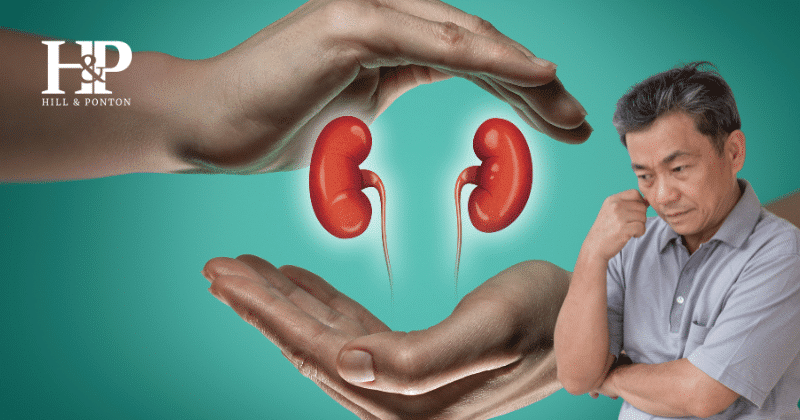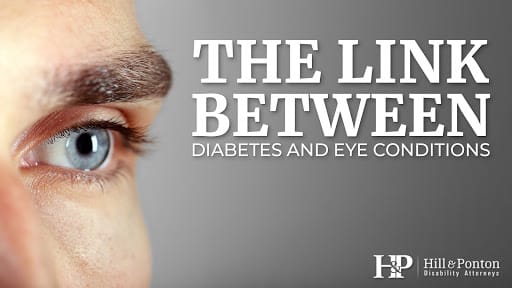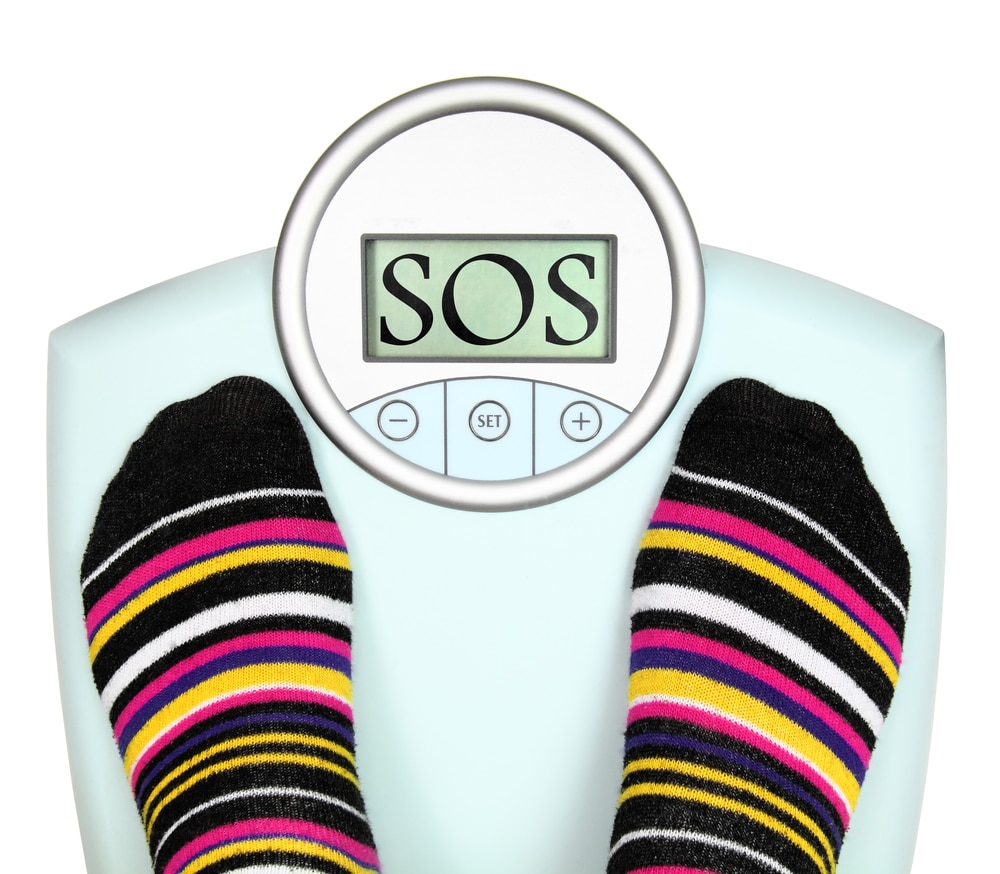Chronic Kidney Disease, commonly known as CKD, is a health issue that affects many people, but did you know that it occurs 34% more often in veterans like you than in the general population?
That’s a significant number, and it highlights how crucial it is for veterans to understand the VA disability ratings for CKD.
Whether you are recently diagnosed or you’ve been managing your condition for a while, knowing how to navigate the VA rating system for chronic kidney disease can make a big difference in the benefits you receive.
This comprehensive blog post aims to be your go-to guide for all things related to VA disability benefits for CKD.
You’ll learn the basics of how VA ratings are determined for chronic kidney disease, the step-by-step process to apply for your VA rating, and the legal protections you have as a veteran.
We’ll also delve into the importance of medical evidence when applying for your VA rating for CKD, as well as what you can expect after your application is submitted.
As someone who has served our country, you deserve to have a full understanding of your rights and benefits, especially when it comes to health matters like CKD.
With accurate VA disability ratings, you can gain access to healthcare services and financial support, making your journey with chronic kidney disease more manageable.
So, if you’re a veteran dealing with CKD or you’re interested in how the VA rating system can impact your disability benefits, keep reading.
Why VA Ratings Matter for CKD
When you’re dealing with Chronic Kidney Disease, every aspect of your life can be affected—from your overall well-being to your financial stability.
That’s where VA disability ratings come into play.
These ratings are crucial because they directly influence the level of benefits you can receive.
Accurate VA ratings for chronic kidney disease mean that you could be eligible for monthly disability payments, healthcare services, and even special grants for home modifications if needed.
Your VA rating for CKD acts as a key that opens the door to a range of resources designed to support veterans.
It’s not just about receiving a monthly check; it’s about getting comprehensive care and financial support that can help make life more manageable.
Link between CKD and Military Service
You may wonder why CKD is more prevalent among veterans.
Research points to several factors that are unique to military service, which could contribute to the development of CKD.
Exposure to certain chemicals or hazardous environments, high levels of stress, and even some medications prescribed during service can play a role.
Understanding this link can also strengthen your case when applying for VA disability ratings for CKD, especially if you can provide documentation or evidence that traces your condition back to your time in service.
By fully comprehending why VA ratings are vital and how CKD is linked to military service, you’re arming yourself with valuable knowledge.
This information not only helps you make sense of your condition but also prepares you to tackle the VA application process for chronic kidney disease.
With the right tools and information, you can ensure that you’re getting the benefits you’ve rightfully earned.
Understanding VA Ratings for CKD: The Basics
If you’re a veteran with Chronic Kidney Disease, you’re probably wondering how the VA determines your disability rating.
The VA uses specific Diagnostic Codes, ranging from 7500 to 7534, to evaluate kidney conditions, including CKD.
Your rating could range anywhere from 0% to 100%, depending on the severity of your condition and its impact on your daily life.
Here’s how it works: VA examiners look at various factors like your blood test results, urine albumin levels, and the stage of your CKD.
For instance, if your CKD is in the earlier stages and doesn’t require regular dialysis, your VA rating might be lower.
On the other hand, if you’re in the later stages of CKD and require frequent medical intervention, your rating could be higher.
The Role of Medical Evidence
The VA rating isn’t determined just by a checklist.
One of the most important aspects of getting an accurate VA rating for chronic kidney disease is the medical evidence you provide.
This includes your medical records, laboratory test results, and statements from healthcare providers.
These pieces of evidence are crucial because they offer a detailed look at your condition over time, not just a snapshot.
Remember, the more complete your medical evidence, the better the chance you have of receiving an accurate VA rating for CKD.
This means gathering all relevant blood tests, urine tests, and any imaging studies you may have had.
It can also be beneficial to include statements from healthcare providers who have been closely involved in your CKD management.
Accurate medical evidence does more than just boost your VA rating; it helps paint a comprehensive picture of your health, which can influence the level of benefits you’re entitled to receive.
Make sure to collect all relevant information to build a strong case for your VA disability claim for chronic kidney disease.
Armed with this foundational knowledge about VA ratings for CKD, you’re now better prepared to navigate the application process, which we’ll dive into in the next section.
How to Apply for a VA Rating for CKD
Step-by-Step Application Process
Applying for a VA disability rating for Chronic Kidney Disease may seem daunting, but it’s a critical step in securing the benefits you’re entitled to.
Here’s how you can go about it:
- Collect Medical Evidence: Before you even start the application, gather all relevant medical records, lab tests, and healthcare provider statements related to your CKD.
- Complete the Necessary Forms: The primary form you’ll need to fill out is the VA Form 21-526EZ, which is the “Application for Disability Compensation and Related Compensation Benefits.” Make sure to include all requested details, particularly those related to your CKD.
- Submit Your Application: You can submit your application online through the VA website, by mail, or even in person at your local VA office.
- Attend the C&P Exam: After submitting your application, you’ll be scheduled for a Compensation and Pension (C&P) exam. This exam will help the VA confirm your CKD diagnosis and assess its severity.
What Happens After You Apply?
Once you’ve completed the C&P exam, your entire file, including the medical evidence and exam results, will be reviewed to determine your VA rating for Chronic Kidney Disease.
You will then receive a decision letter detailing your rating and the benefits you are eligible for.
Timeline: It can take several months to years for the VA to process your application and make a decision. Therefore, it’s crucial to submit as complete an application as possible the first time to avoid delays.
Appeals: If you disagree with the initial rating, you have the right to appeal. The appeals process can be complex, but it’s your opportunity to present new evidence or arguments to get the rating you believe accurately reflects your condition.
Understanding the application process for securing a VA rating for CKD will empower you to take charge of your healthcare and financial benefits.
The more informed you are, the smoother the application process will be, helping you secure the benefits you rightfully deserve.
Legal Protections and Your VA Rating for CKD
Know Your Rights
When dealing with Chronic Kidney Disease and the VA disability system, it’s essential to know your legal rights.
These are protections afforded to you as a veteran, which can assist you in the application process, appeals, and even your healthcare treatment.
- Right to Appeal: If you disagree with your VA rating for Chronic Kidney Disease, you have the legal right to file an appeal. Understanding the appeals process is vital, as certain deadlines and procedures must be followed.
- Right to Legal Representation: You are entitled to seek legal assistance for your VA disability claims. Whether you’re applying for the first time or going through an appeal, having an experienced VA disability attorney can be beneficial.
- Right to Healthcare: Once you receive your VA rating, you’re entitled to healthcare services for your CKD through the VA medical centers. Make sure to utilize these services for ongoing CKD management.
Preparing for Possible Scenarios
- Denied Claims: It’s not uncommon for initial claims to be denied, but don’t be discouraged. You have the right to appeal and provide more evidence to support your case.
- Rating Reevaluations: Your VA rating isn’t necessarily permanent; it can be reevaluated over time. Especially with a condition like CKD, which can progress, be prepared for periodic reevaluations and know your rights in those circumstances.
- Effective Date Errors: Your benefits are calculated from your effective date, which should be the day you became disabled or the day you applied for benefits, whichever is later. If you find an error in this date, you have the right to challenge it, as it can affect your back pay.
Knowing your legal rights and protections can make a world of difference in navigating the complexities of VA ratings for Chronic Kidney Disease.
It ensures that you’re not only getting the benefits you deserve but also that you’re treated fairly throughout the process.
Tips for a Successful VA Disability Claim for CKD
Building a Strong Case
Your VA disability claim for Chronic Kidney Disease is more than just filling out a form; it’s about building a strong case that represents your medical condition accurately.
Here are some tips to increase your chances of a successful claim:
- Be Thorough with Medical Records: The more comprehensive your medical history related to CKD, the better. Include every relevant test result, diagnosis, and treatment plan.
- Personal Statements: Personal statements can add a qualitative aspect to your application. These are your own descriptions of how CKD affects your daily life, and they can provide important context for your medical records.
- Buddy Statements: Also known as “lay statements,” these are written by people who know you and can vouch for your condition. Whether it’s family, friends, or even fellow service members, these statements can reinforce your claim.
Utilize Additional Resources
- VA Benefits Advisors: Utilize the help of VA benefits advisors who are trained to assist you through the claims process. They can help you understand complex elements of the VA rating system and application procedure for chronic kidney disease.
- Independent Medical Opinions: Sometimes, getting an independent medical opinion can lend extra weight to your application. This is particularly true if the VA C&P exam does not adequately capture the severity of your CKD.
- Keep a Symptom Diary: Tracking your symptoms and how they affect your life can provide real-time, qualitative evidence that can be useful for your application or any subsequent appeals.
Don’t Hesitate to Ask for Help
Filing a VA disability claim for CKD can be a complex process.
Don’t hesitate to seek help, whether it’s from a VA benefits advisor, a legal representative, or even a healthcare provider who understands both your medical condition and the VA system.
With a carefully built case and the right resources, you can navigate the VA disability claim process for Chronic Kidney Disease more confidently and stand a better chance of receiving the benefits you rightfully deserve.
Frequently Asked Questions (FAQs) About VA Rating for Chronic Kidney Disease
How long does it take to get a VA rating for Chronic Kidney Disease?
The timeline can vary, but generally, it takes several weeks to a few months to process your application and make a decision.
Is CKD automatically considered a service-connected disability?
No, you’ll need to establish that your CKD is service-connected by providing evidence such as medical records, service records, or expert testimony.
Can I receive VA disability benefits for CKD if I already have a disability rating for another condition?
Yes, you can have multiple disability ratings, and the VA uses a combined rating system to determine your overall disability percentage and compensation.
What kind of benefits will I receive if I get a VA rating for CKD?
Depending on your rating, you may be eligible for monthly disability payments, healthcare services for your CKD through VA medical centers, and possibly other benefits like vocational rehabilitation.
Do I need a lawyer to file an appeal if I disagree with my VA rating for CKD?
While it’s not mandatory to have a lawyer, legal representation can guide you through the complex appeals process and may improve your chances of a successful appeal.
How can I correct an effective date error on my VA disability claim for CKD?
If you find an error in your effective date, you can challenge it by filing an appeal. Accurate effective dates are crucial, as they can affect your back pay.
Can my VA disability rating for CKD be reevaluated and changed?
Yes, the VA periodically reevaluates disability ratings, especially for conditions like CKD that can change over time.
Where can I get more help and resources about VA ratings for CKD?
VA benefits advisors, healthcare providers familiar with the VA system, and VA disability attorneys can provide valuable guidance. Many online resources and forums are also available to help you navigate the process.
Does the VA offer any specific programs or treatments for veterans with CKD?
The VA healthcare system offers a variety of treatments and programs aimed at managing CKD, including but not limited to dialysis and kidney transplant services. Consult your local VA medical center for more information.
Navigating the VA disability system can be a complex journey, especially when dealing with a serious medical condition like Chronic Kidney Disease.
However, armed with the right information and resources, you can better understand your legal rights, build a strong case, and ultimately secure the benefits you rightfully deserve.
Whether you’re at the start of this process, preparing an appeal, or simply looking to understand your existing VA rating for CKD better, we hope this guide serves as a helpful roadmap.
Your service to your country should not be rewarded with the struggle of navigating the VA system alone; you’re not in this fight by yourself.
Take advantage of the resources and benefits available to you as a veteran, and don’t hesitate to seek professional advice along the way.
Have Questions About Appealing Your Claim or Understanding How the Claims Process Works?
The attorneys at Hill & Ponton are here to support you with appealing a claim to get benefits.
If you are intending to appeal a denied VA disability claim, you can contact us for an evaluation and we can help you with this process.
However, if you are considering filing an initial claim, or even if you are interested in learning about the appeals process, we offer a free ebook to get you started on the right foot!
The Road to VA Compensation Benefits will help break down the claims process from start to finish.
Click the link below to learn more.





